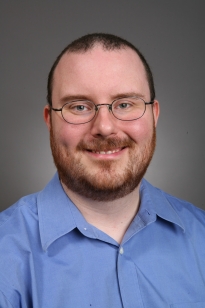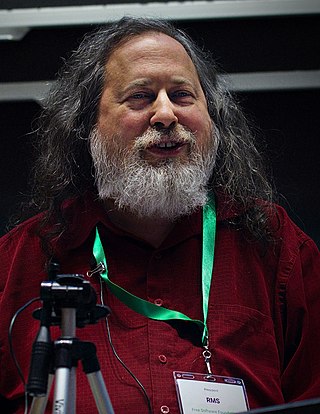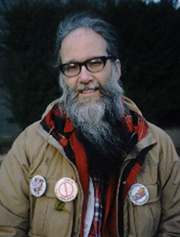
Free software, libre software, or libreware is computer software distributed under terms that allow users to run the software for any purpose as well as to study, change, and distribute it and any adapted versions. Free software is a matter of liberty, not price; all users are legally free to do what they want with their copies of a free software regardless of how much is paid to obtain the program. Computer programs are deemed "free" if they give end-users ultimate control over the software and, subsequently, over their devices.
The free software movement is a social movement with the goal of obtaining and guaranteeing certain freedoms for software users, namely the freedoms to run, study, modify, and share copies of software. Software which meets these requirements, The Four Essential Freedoms of Free Software, is termed free software.
The Free Software Definition written by Richard Stallman and published by the Free Software Foundation (FSF), defines free software as being software that ensures that the users have freedom in using, studying, sharing and modifying that software. The term "free" is used in the sense of "free speech," not of "free of charge." The earliest-known publication of the definition was in the February 1986 edition of the now-discontinued GNU's Bulletin publication by the FSF. The canonical source for the document is in the philosophy section of the GNU Project website. As of April 2008, it is published in 39 languages. The FSF publishes a list of licences that meet this definition.

GNU is an extensive collection of free software, which can be used as an operating system or can be used in parts with other operating systems. The use of the completed GNU tools led to the family of operating systems popularly known as Linux. Most of GNU is licensed under the GNU Project's own General Public License (GPL).

The Open Source Initiative (OSI) is the steward of the Open Source Definition, the set of rules that define open source software. It is a California public-benefit nonprofit corporation, with 501(c)(3) tax-exempt status.

The GNU Project is a free software, mass collaboration project announced by Richard Stallman on September 27, 1983. Its goal is to give computer users freedom and control in their use of their computers and computing devices by collaboratively developing and publishing software that gives everyone the rights to freely run the software, copy and distribute it, study it, and modify it. GNU software grants these rights in its license.

The Free Software Foundation Europe (FSFE) is an organization that supports free software and all aspects of the free software movement in Europe, with registered chapters in several European countries. It is a registered voluntary association incorporated under German law.

The Free Software Foundation (FSF) grants two annual awards. Since 1998, FSF has granted the award for Advancement of Free Software and since 2005, also the Free Software Award for Projects of Social Benefit.
Free as in Freedom: Richard Stallman's Crusade for Free Software (ISBN 0-596-00287-4) is a free book licensed under the GNU Free Documentation License about the life of Richard Stallman, written by Sam Williams and published by O'Reilly Media on March 1, 2002.

Bradley M. Kuhn is a free software activist from the United States.

Free and open-source software (FOSS) is software that is available under a license that grants the right to use, modify, and distribute the software, modified or not, to everyone free of charge. The public availability of the source code is, therefore, a necessary but not sufficient condition. FOSS is an inclusive umbrella term for free software and open-source software. FOSS is in contrast to proprietary software, where the software is under restrictive copyright or licensing and the source code is hidden from the users.
The Free Software Foundation of India (FSFI) is the Indian sister organisation to the US-based Free Software Foundation. It was founded in Thiruvananthapuram (Trivandrum) in 2001 as a non-profit Company. The FSFI advocates to promote the use and development of free software in India. This includes educating people about free software, including how it can help the economy of a developing country like India. FSF India regards non-free software as not a solution, but a problem to be solved. Free software is sometimes locally called swatantra software in India.
Alternative terms for free software, such as open source, FOSS, and FLOSS, have been a controversial issue among free and open-source software users from the late 1990s onwards. These terms share almost identical licence criteria and development practices.

Richard Matthew Stallman, also known by his initials, rms, is an American free software movement activist and programmer. He campaigns for software to be distributed in such a manner that its users have the freedom to use, study, distribute, and modify that software. Software that ensures these freedoms is termed free software. Stallman launched the GNU Project, founded the Free Software Foundation (FSF) in October 1985, developed the GNU Compiler Collection and GNU Emacs, and wrote all versions of the GNU General Public License.

Leonard "Len" H. Tower Jr. is a free software activist and one of the founding board members of the Free Software Foundation, where he contributed to the initial releases of gcc and GNU diff. He left the Free Software Foundation in 1997.
The Free Software Foundation (FSF) is a 501(c)(3) non-profit organization founded by Richard Stallman on October 4, 1985, to support the free software movement, with the organization's preference for software being distributed under copyleft terms, such as with its own GNU General Public License. The FSF was incorporated in Boston, Massachusetts, United States, where it is also based.

Free Software, Free Society: Selected Essays of Richard M. Stallman is a collection of writings by Richard Stallman. It introduces the subject of history and development of the GNU Project and the Free Software Foundation, explains the author's philosophical position on Free Software movement, deals with the topics of software ethics, copyright and patent laws, as well as business practices in application to computer software. The author proposes Free software licenses as a solution to social issues created by proprietary software and described in essays.

Alexandre "Alex" Oliva, is a Brazilian free software activist, developer, former vice president of the board of directors of the Free Software Foundation (FSF) and founding member of Free Software Foundation Latin America (FSFLA). He is currently on-hold from his PhD studies at the Institute of Computing of the State University of Campinas, Brazil whilst working as a compiler engineer at Red Hat, contributing in the GCC compiler. He is the maintainer of Linux-libre, a fork of the Linux kernel which removes non-free software components, such as binary blobs from the kernel. The Linux-libre kernels are used in Linux distributions such as Parabola GNU/Linux-libre and Trisquel, all of which are recommended by the Free Software Foundation and the GNU Project.

Matthew Garrett is an Irish technologist, programmer, and free software activist who is a major contributor to a series of free software projects including Linux, GNOME, Debian, Ubuntu, and Red Hat. He has received the Free Software Award from the Free Software Foundation (FSF) for his work on Secure Boot, UEFI, and the Linux kernel.
LibrePlanet is a community project created and supported by the Free Software Foundation. Its objective is the promotion of free software around the world by bringing every year an international conference to local communities and organizations.













